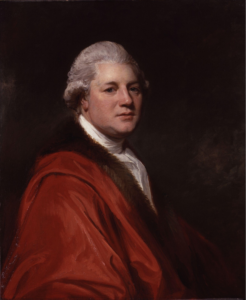Song of the bards
(Poet's title: Bardengesang)
Set by Schubert:
D 147
for TTB trio[January 20, 1816]
Rolle, du strömigter Carun,
rolle in Freuden vorbei;
die Söhne des Kampfes entflohn!
Man sieht das Ross in unsern Feldern nicht mehr;
die Flügel ihres Stolzes
spreiten sich in fremden Ländern.
Nur wird die Sonne in Frieden aufgehn,
und schatten in Freude hersteigen.
Die Stimme der Jagd wird vernommen,
die Schilde hangen in der Halle.
Frohlocken werden wir im Kriege des Meers,
unsere Hände werden rot im Blute von Lochlin!
Roll, streamy Carun,
roll in joy,
the sons of battle fled!
The steed is not seen on our fields;
the wings of their pride
spread in other lands.
The sun will now rise in peace,
and the shadows descend in joy.
The voice of the chase will be heard;
the shields hang in the hall.
Our delight will be in the war of the ocean,
our hands shall grow red in the blood of Lochlin.
English original
All translations into English that appear on this website, unless otherwise stated, are by Malcolm Wren. You are free to use them on condition that you acknowledge Malcolm Wren as the translator and schubertsong.uk as the source. Unless otherwise stated, the comments and essays that appear after the texts and translations are by Malcolm Wren and are © Copyright.
☙
Themes and images in this text:
Banquets and feasts Bards and minstrels Blood Horses Hunters and hunting Joy Red and purple Rivers (Strom) Songs (general) The sea The sun War, battles and fighting
‘Comala: A Dramatic Poem’ appeared in the early editions of Ossian (1762), so was one of Macpherson’s first discoveries / creations. It is set in 211 at the time of the Roman Emperor Caracalla, and his expedition to Caledonia. Comala, an Orkney princess, has fallen in love with Fingal, who goes off to fight ‘Caracul’ (Caracalla). Fingal promises to marry Comala if he survives the battle. He does so and a victory / wedding banquet is prepared, at which Fingal urges his bards to sing. Five named characters comment on the events in the early stages of the drama, but this song is the first moment of choral, multi-voice participation. This is presumably why Schubert set the text for three male voices (perhaps to be performed as part of an acted out recitation of the whole text).
☙
Original Spelling and notes on the text Bardengesang Rolle, du strömigter Carun, rolle in Freuden vorbey; die Söhne des Kampfes entflohn! Man sieht das Roß in unsern Feldern nicht mehr; die Flügel ihres Stolzes spreiten sich in fremden1 Ländern. Nur wird die Sonne in Frieden aufgehn, und schatten in Freude hersteigen2. Die Stimme der Jagd wird vernommen; die Schilde hangen in der Halle. Frohlocken werden wir im Kriege des Meers, unsere Hände werden roth im Blute von Lochlin. 1 Schubert changed 'andern' (other) to 'fremden' (foreign) 2 Schubert changed 'herabsteigen' (descend) to 'hersteigen' (climb)
Confirmed by Peter Rastl with Schubert’s source Die Gedichte Ossians, des Celtischen Helden und Barden. Aus dem Englischen und zum Theile der Celtischen Ursprache übersetzt von Freyherrn von Harold, Zweyte verbesserte und mit vielen bisher unentdeckten Gedichten vermehrte Auflage. Mannheim 1782, im Verlage der Herausgeber der ausländischen schönen Geister, pages 69-70.
To see an early edition of the text, go to Erstes Bild 98 here: https://download.digitale-sammlungen.de/BOOKS/download.pl?id=bsb10035580


